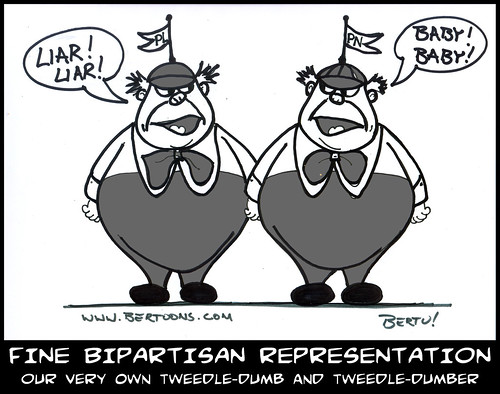Sliema is really getting what it deserves. I am sorry to say this but the last local council elections were a clear example of how, at times, factors that have little to do with political vision influence electoral results. In a few words, Sliema is now reaping what was sown. I might be biased in saying this, given that I was not elected in 2009, having been elected in 2003 and 2006. But I invite others to contradict my statements below.
Beyond the battle between the official Nationalist Party position, the Nikki Dimech faction and the strange alliances of certain Labour councillors, one has to view the whole “Sliema” issue holistically.
Given the lack of proper legislation on financing of electoral campaigns, it is no surprise that political clientelism and business interests play a key role in Maltese politics even at a local level. Indeed, if one looks at the last local election in Sliema it would be very difficult to believe that all candidates’ electoral expenses were within the allowed limits. Many residents to this day tell me it is more than obvious that local elections are not based on a democratic and just level playing field.
In the last council election, one could witness social events such as receptions, the systematic provision of transport for elderly voters, electoral promises to various constituents that have nothing to do with political vision, telephone campaigns of the “Big Brother is watching you” type and so forth. There surely was no level playing field among all candidates.
This was even evident in the character-assassination-whispering-campaigns, at times between candidates belonging to the same party.
Given that Malta has practically no legislation regarding the financing of political parties, this necessarily leads to pressure from business interests for political favours. Hence, it is imperative that contracts awarded by local councils are properly scrutinised.
It is precisely for this reason that when I was councillor I consistently proposed having a contracts manager. I was supported by PN councillor Julian Galea on this… yet a decision by the council was consistently postponed.
Having professional administrative staff is imperative for efficient local councils. Yet, the present council apparently thought otherwise as one of its first decisions was to oust executive secretary Josef Grech.
The work of Mr Grech, his staff and of certain councillors, who, in previous years, did their best to ensure that Sliema’s voice was heard and who worked as a team, was basically discarded.
As for myself, in my six years as councillor I worked as hard as possible to help improve the quality of life in Sliema. I gave priority to issues such as public consultation, sustainable development, the impact of construction on the community, waste management, pollution, public transport, swimming and animal welfare. I worked well with councillors irrespective of their political affiliation and I often managed to convince both Nationalist and Labour council members on various issues.
Well, actually, in my eyes, there were “four” political parties in the council, namely, Green, Labour, the PN “Pullicino faction” and the PN “Arrigo faction”. Perhaps the most surreal experience of all was when certain PN councillors objected that the council should praise the government for the reclaiming and embellishment of St Anne Square!
I thought I would get my best result ever in 2009 but the opposite happened. I was obviously disappointed and I was about to quit politics, feeling a sense of freedom in the process… But, as philosopher Louis Althusser tells us, “the future lasts a long time” … Indeed, I changed my mind after a few weeks and ended being elected AD chairman.
Whenever I am stopped by Sliema residents who complain about all sorts of issues, I remind them of a powerful tool they still possess – the vote.
If you want change, vote for it…
*****
Zolabytes is a rubrique on J’accuse – the name is a nod to the original J’accuser (Emile Zola) and a building block of the digital age (byte). Zolabytes is intended to be a collection of guest contributions in the spirit of discussion that has been promoted by J’accuse on the online Maltese political scene for 5 years.
Opinions expressed in zolabyte contributions are those of the author in question. Opinions appearing on zolabytes do not necessarily reflect the editorial line of J’accuse the blog.
****






![Reblog this post [with Zemanta]](http://img.zemanta.com/reblog_e.png?x-id=37d347b4-9541-4c91-88e2-94c9724dc9b8)